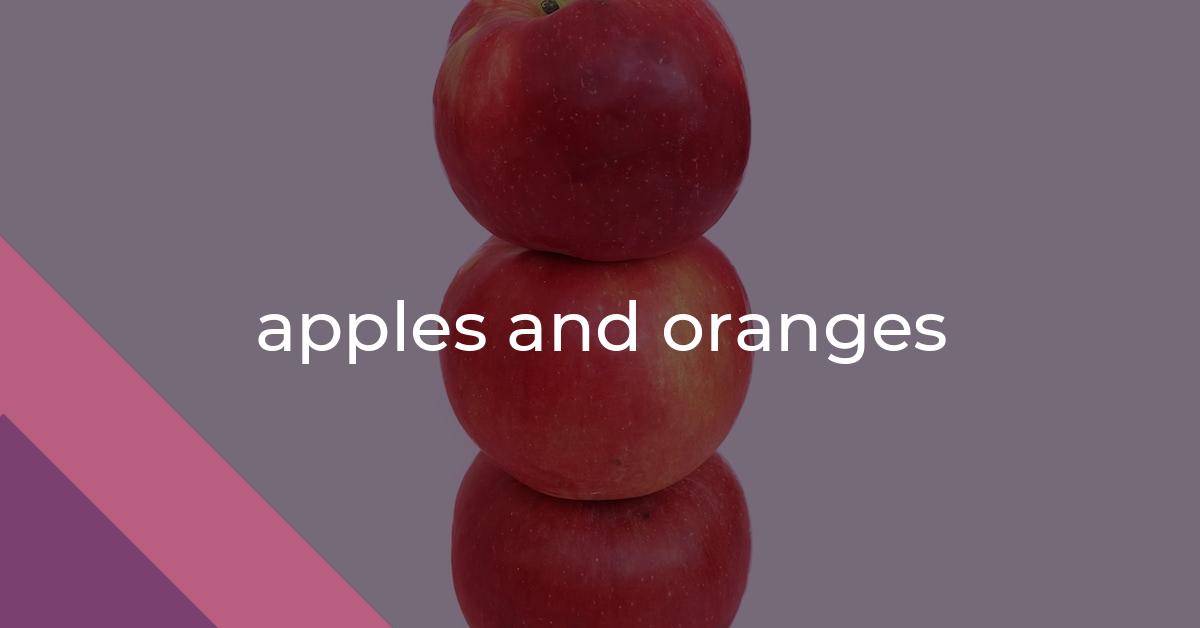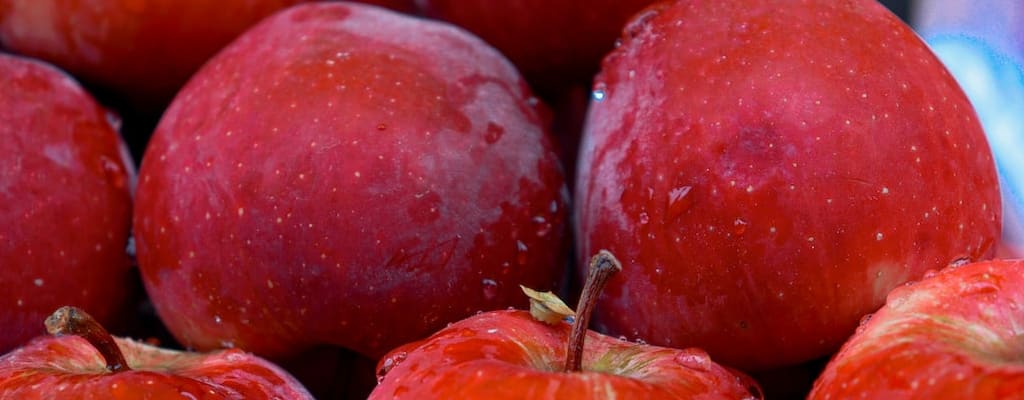apples and oranges: Idiom Meaning and Origin
What does ‘apples and oranges’ mean?
The idiom "apples and oranges" is used to emphasize the differences between two things or to compare two things that are completely unrelated. It is often used to highlight the fallacy of comparing two things that are too dissimilar to be compared logically.

Idiom Explorer
The idiom "mix apples and oranges" means to combine or compare two things that are fundamentally different and cannot be easily compared.
The idiom "let alone" is used to emphasize that one thing is even more unlikely or difficult than another. It is commonly used to show contrast or to explain that something is too extreme or extreme for consideration.
The idiom "huckleberry above a persimmon" means someone or something that is superior or beyond compare. It is used to indicate a level of excellence or uniqueness that is unmatched.
The idiom "horse of a different color" refers to a situation or topic that is completely distinct or unrelated from the one previously mentioned or discussed. It implies a significant change or shift in focus, often catching people by surprise.
The idiom "go together" means that two or more things are harmoniously compatible or commonly associated with each other.
The idiom "good and" is used as an intensifier to indicate something is very much or completely in a certain state or condition.
The idiom "forbidden fruit" refers to something that is desired but prohibited or off-limits, often due to moral or societal reasons.
The idiom "fine line" refers to a very narrow distinction or difference between two things or situations.
The idiom "dog and cat" refers to a relationship or situation characterized by constant conflict or hostility, like cats and dogs are often portrayed to be. It emphasizes the idea of two entities or individuals that are fundamentally different and cannot get along peacefully.
The idiom "day or night" is used to emphasize the stark contrast between two opposite situations or conditions, indicating that there is no similarity or similarity in their characteristics and qualities.
Comparing Two Unrelated Entities
The idiom "apples and oranges" refers to a comparison of two things that are fundamentally different and cannot be compared directly. It's like trying to mix apples and oranges, which have distinct differences in taste, appearance, and texture.
This metaphorical comparison between apples and oranges dates back to the early 20th century and has since become a widely understood expression in the English language. It is used to highlight the impossibility of comparing or equating two dissimilar things.
When we say something is like comparing apples and oranges, we mean that the two things being compared couldn't be more different. They are like chalk and cheese, completely contrasting and incompatible with each other. Just as you wouldn't mix chalk and cheese, you can't compare apples and oranges.
For example, if someone were to compare the talents of a professional athlete and a scientist, it would be considered an "apples and oranges" comparison. The nature of their respective fields is so different that it's impossible to make a meaningful comparison between them.
The idiom "apples and oranges" is also used to highlight the futility of attempting to compare quantities or values that are inherently different. For instance, comparing the financial success of two individuals from different socio-economic backgrounds would be considered an "apples and oranges" comparison. The underlying circumstances and opportunities differ significantly, making the comparison unequal.
Despite its simplicity, the phrase "apples and oranges" carries significant weight in everyday conversation, media, and literature. It serves as a reminder to carefully consider the nature of the elements being compared and to recognize when a comparison is illogical or without a sound basis.
This idiom challenges us to think critically about our comparisons and acknowledge the intricate differences that make each subject unique. Instead of trying to mix apples and oranges, we should appreciate and respect the distinct qualities of each.
So, the next time you encounter a comparison that just doesn't make sense, remember the idiom "apples and oranges." It's a friendly reminder to avoid mixing what couldn't be more different, like chalk and cheese.
By embracing the idiom's message, we can foster clearer and more effective communication, understanding that some things are simply incomparable, like apples and oranges.
Example usage
Examples of how the idiom "apples and oranges" can be used in a sentence:
- "Comparing the skills of two completely different athletes is like comparing apples and oranges."
- "Trying to compare the weather in different cities is like comparing apples and oranges."
- "You can't compare the taste of a pizza to the taste of ice cream, it's like comparing apples and oranges."
More "Comparison" idioms



